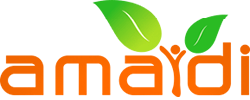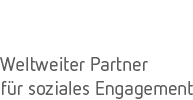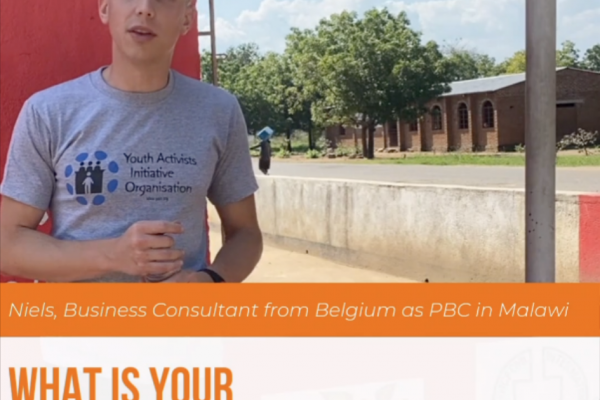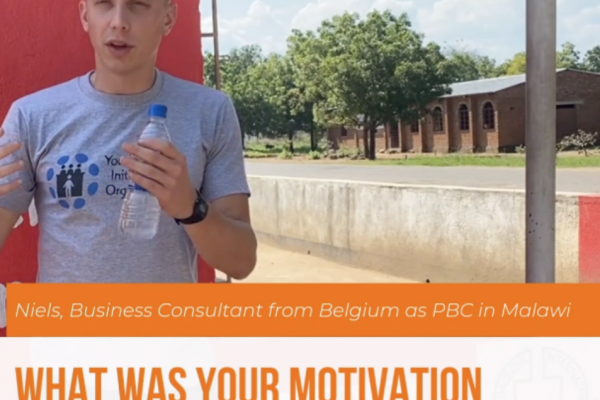What were your highlights sofar?
Right from the project kick-off in October 2020, we can look back on a very interesting start for the project to develop a business strategy for YAIO – a NGO improving the lives of young people in Malawi.
Interesting interviews with different stakeholders were done, work was synchronized and coordinated in the weekly project meetings and the first round of workshops already took place.
Looking back – we were able to learn a lot from different stakeholders, researching other NGO’s and the experiences from the team. Bringing it all together in workshops with the full YAIO resulting in the first building blocks of the strategy, which we’re building together.
What were your biggest challenges?
There are 3 main challenges that I’ve encountered during the start up of the project: (1) Remote working, (2) Cultural difference and (3) Structure & approach.
(1) Remote working was quite mandatory due to the Covid-19 situation, both in Belgium and Malawi. This resulted in the challenge of building trust remotely with people that haven’t met me before. This trust is especially crucial in realizing the right outcomes for the project. Also understanding the context, which would normally entail also experiencing the organization locally, has been a lot more difficult when limited to only virtual meetings.
(2) Cultural difference. It has been quite a bit of adjusting to ‘Malawi time’ coming from working only in a Belgian Context. I’ve learned that 9:00am actually means 9:15-9:25am and I’ve grown to actually appreciate that time. This is when I actually revise my preparation for that specific meeting, get a cup of coffee and double check what outcomes are needed to get some speed into the project. When my Belgians colleagues started appeared on time in my meetings, it took a little bit of re-adjusting 😉 Also not having the infrastructure in place that I’m used to (everyone having their own laptop and decent internet connection) have provided an extra challenge during for example the virtual brainstorms where I’ve drastically had to switch from my usual tools to more basic ways (ex. powerpoint). The quality of connection also pushed my small-talk skills new heights, bonding with those not disconnected in anticipation of the others re-connecting.
(3) Structure & Approach. This actually entailed bringing structure where there was very little clarity initially about what needed to be done and what needed to be done first. Learn bit by bit from the different stakeholders and fine-tuning the approach on the go have helped enormously to actually have everyone on the same page and move the project forward.
What have you learnt sofar?
I think I’ve learned a lot from this project already in multiple ways, corresponding to the challenges formulated above
(1) virtual relationship building (2) working with different cultures and (3) building my own structure.
(1) Virtual relationship building: Although challenging, I’ve improved (or at least trained a lot) at building relationships with people fully remotely. This was a serious challenge – especially for the first stakeholders to connect to – but I’ve grown more comfortable with it.
(2) Working with different cultures again reminded me that a different way is not necessarily a bad way. Always try to understand the other perspective and make the best out of it (ex. of the coffee break at the start of my meetings). This has trained my empathic skills and learned my to be more openminded for different ways of approaching things.
(3) Building my own structure. Having the responsibility of being the only one staffed on the project and the organizational challenges that we we’re facing, it was important for me to step up and provide clear guidance and an approach to tackle things. Outside of this project, you rarely get so much freedom to actually approach things exactly how you want. Definitely a challenge, but I learned a lot from the tools & techniques I was allowed to use.
Still critical of my own work during this time period and looking forward to review the approach – both from the perspective of the organization as well as the results it produced.
What are the next steps?
This was only the first period, looking forward to see this develop further.
– Don’t see problems, see challenges.
– Don’t think you know it better, the local organization often already knows/has the answers but needs a way to get them out.
– Have fun while your doing it and build authentic relationships.
Comments
Search
Kategorien
- Corporate Volunteering (16)
- CSR (4)
- Events (42)
- News (112)
- Press (13)
- Press Release (6)
- Publications (7)
- Pro Bono (21)
- Volunteer Reports (40)
- Volunteering (14)
- YEAH (1)









Recent Comments